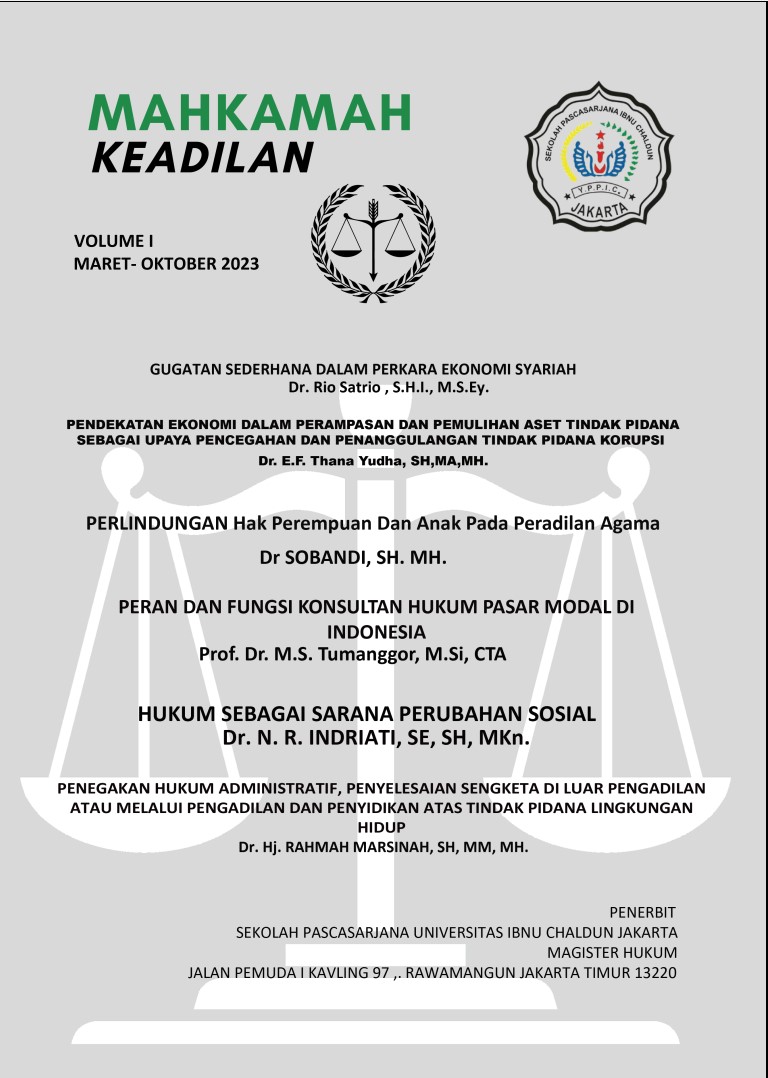PENDEKATAN EKONOMI DALAM PERAMPASAN DAN PEMULIHAN ASET TINDAK PIDANA SEBAGAI UPAYA PENCEGAHAN DAN PENANGGULANGAN TINDAK PIDANA KORUPSI
Keywords:
TINDAK PIDANA KORUPSIAbstract
To build up a prosperous country can not be achieved if corruption becames a habit to enrich them selves, after the leaders have the position and authority in a power of the State. It is necessary for the existence of Act No. 31 of 1999, jo Law Number: 20 of 2001 on the Eradication of Corruption by Law No. 8 of 2010 on the Prevention and eradiction Money Laundering, so it can prevent the occurrence of corruption, but in fact of legislation such of criminal, whether the evidence conventional and through models expropriation of assets by penal law has run into some of obstacles into return to asset of corruption proceeds. It thus bring about legal problems, which is why the obstacles in recovering assets from corruption that have no evidence of conventional or through seizure of assets a model penal law.
As the analysis of the obstacles in the process of indemnification ofthe statebecause the suspectis get away withtheir assetstoanothercountry, andwhenthe suspect/defendantdies orhas transferredits assets tothe others party. The conventional approachment of evidence laware alsovulnerable tohuman rights violationsof suspectsand defendants. The analysis approachment ofthe economicstoward thelegal establishmentand law enforcementis an early introduction criminal is ticsanalysisonrational choice theory (Ration l Choice Theory). The essenceof thistheoryisthat, everycriminalhas consideredthe benefits ofactions hat exceed thelossesas a result ofhis actions Punishment onlyresult in lossestocriminalbutdid notgive a"benefit" to thevictims of crime (in corruption, the State).
The results ofthe aboveanalysisconcludedthat thepreventionanderadication of corruptionshall considerthe economicapproach torescueevena priority inthe country's financiallosses. Thisis mainly duepatterns andmethods inthe approach takenbylaw enforcement agencies (police, prosecutors andcourts) only usepositivisticlegal approach. Butin a factualandactuallaw enforcement does notsuccessfullyrestorestate finances

